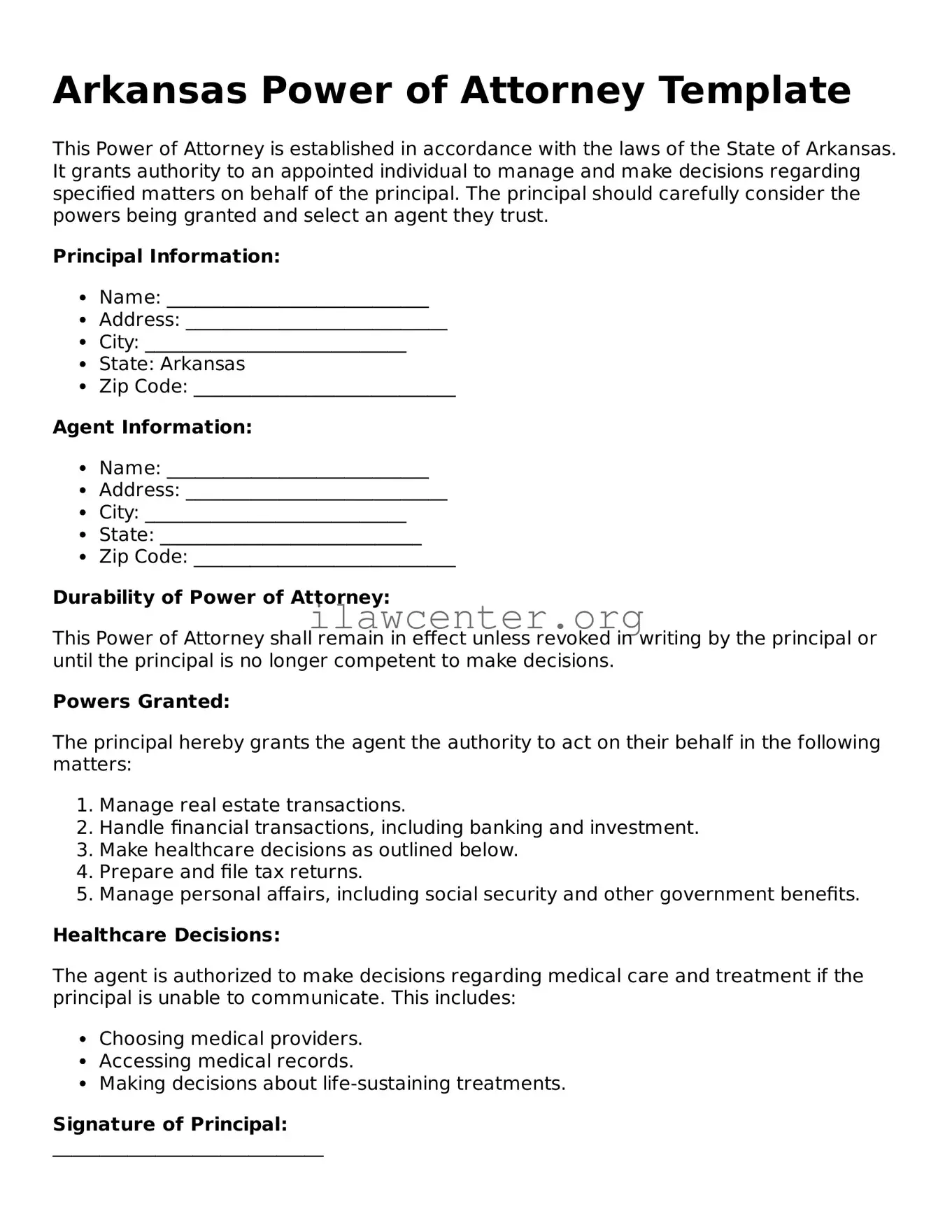Instructions on Utilizing Arkansas Power of Attorney
After acquiring the Arkansas Power of Attorney form, you’ll need to complete it accurately to ensure it serves its purpose effectively. Follow these clear steps to fill out the form properly. Take your time, and ensure that all information is correct and complete.
- Enter the names and addresses of both the principal (the person granting authority) and the agent (the person receiving authority).
- Specify the powers being granted to the agent. This can range from general powers to specific financial decisions.
- Indicate the duration of the Power of Attorney. You can choose whether it starts immediately or is effective only upon a certain event.
- Sign and date the document. The principal must do this in the presence of a notary.
- Have the form notarized. A notary public will verify the identities and witness the signing.
- Distribute copies of the completed form. Ensure that the agent and any relevant institutions (like banks or real estate offices) receive copies.
Once the form is filled out and notarized, it becomes effective according to the terms you've specified. Keeping copies and sharing them with your agent is essential for smooth execution of the specified powers.
